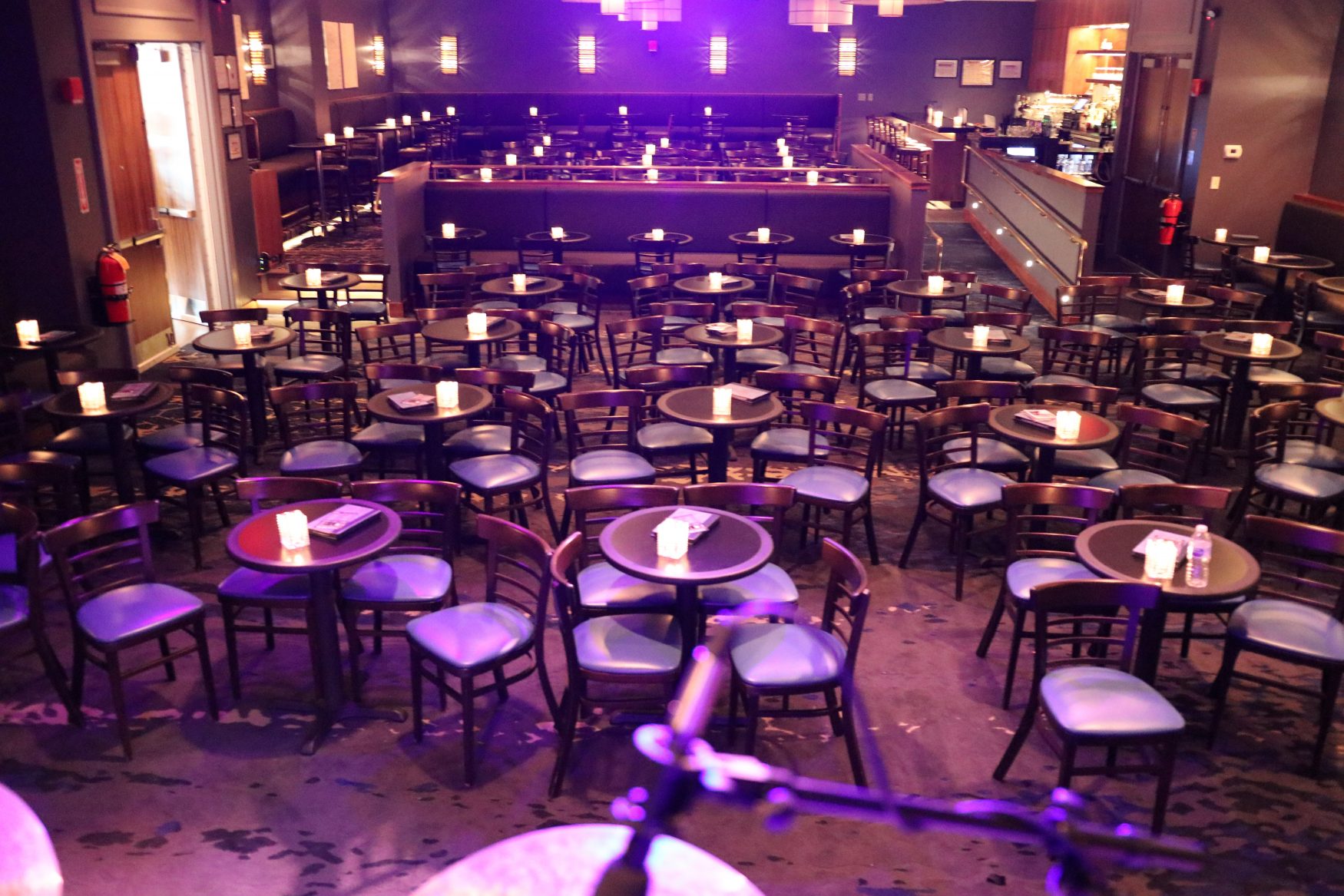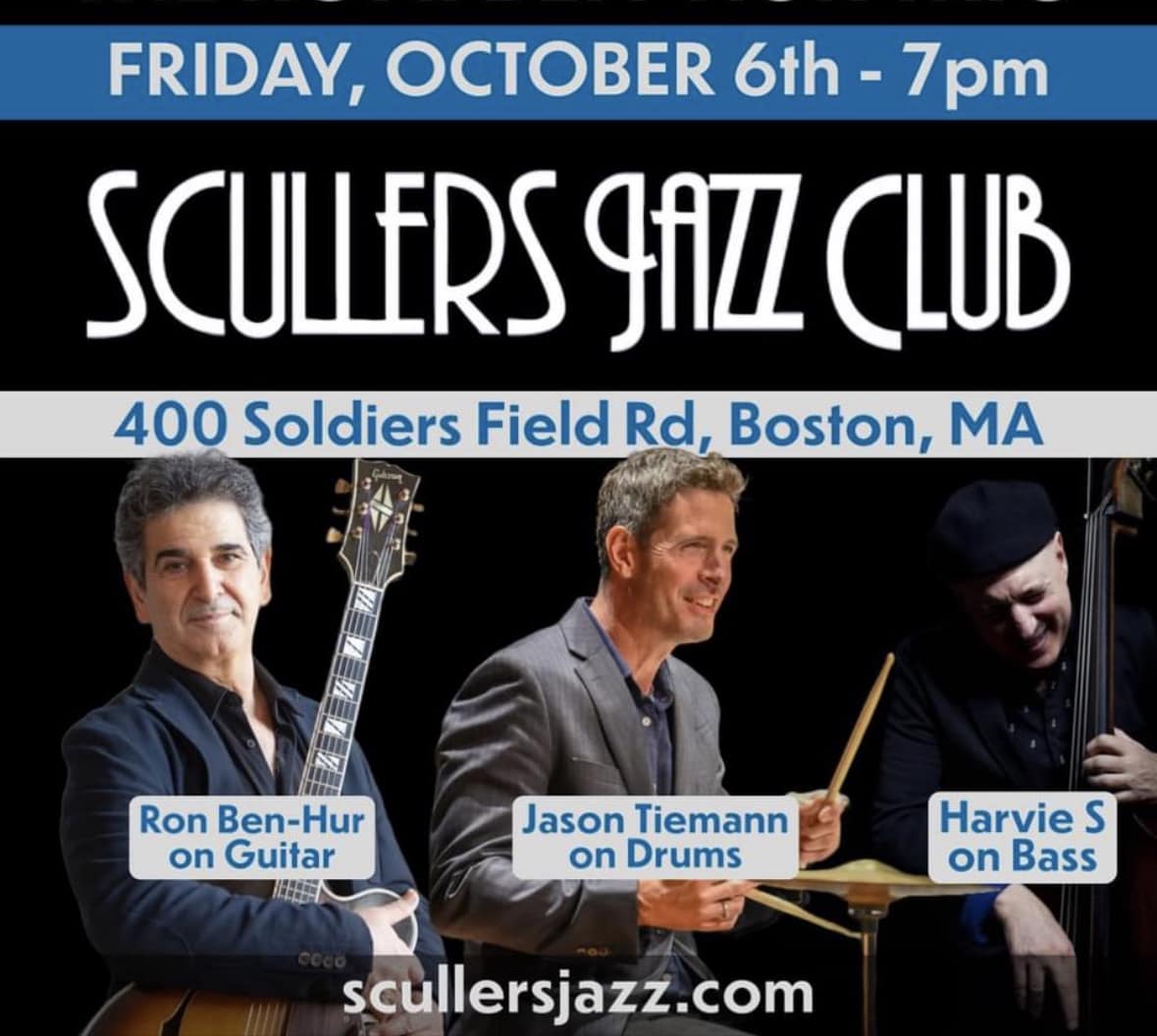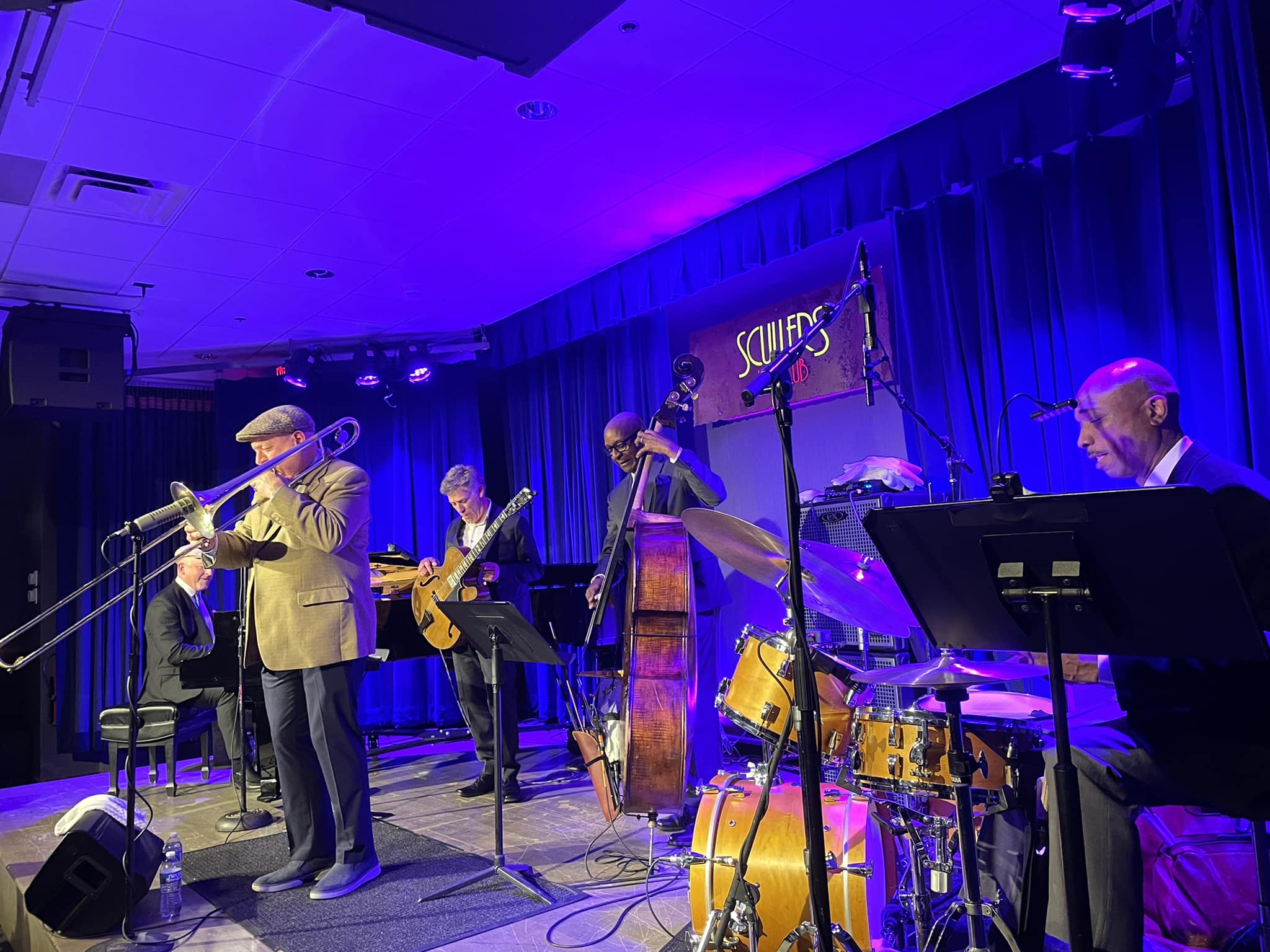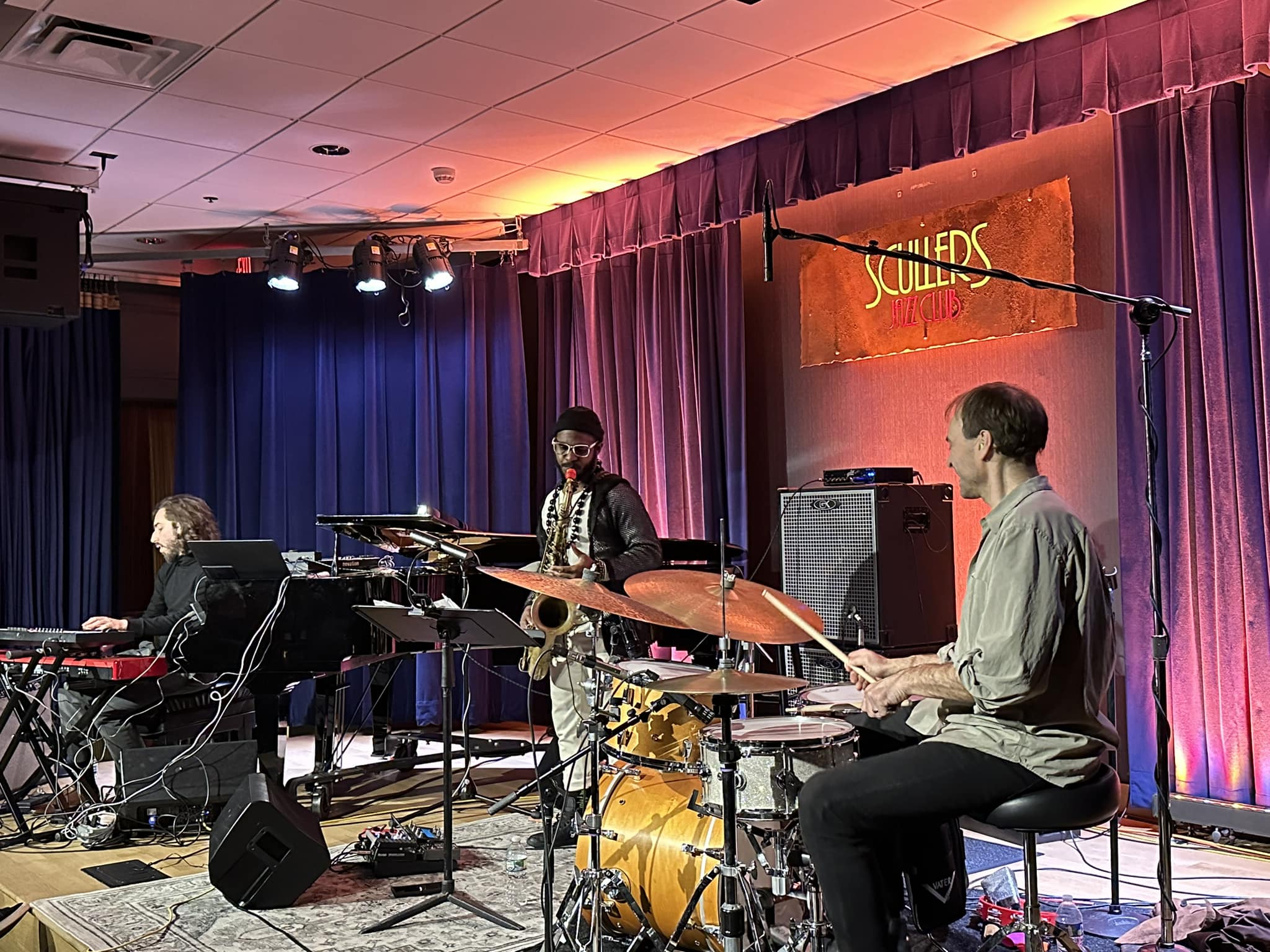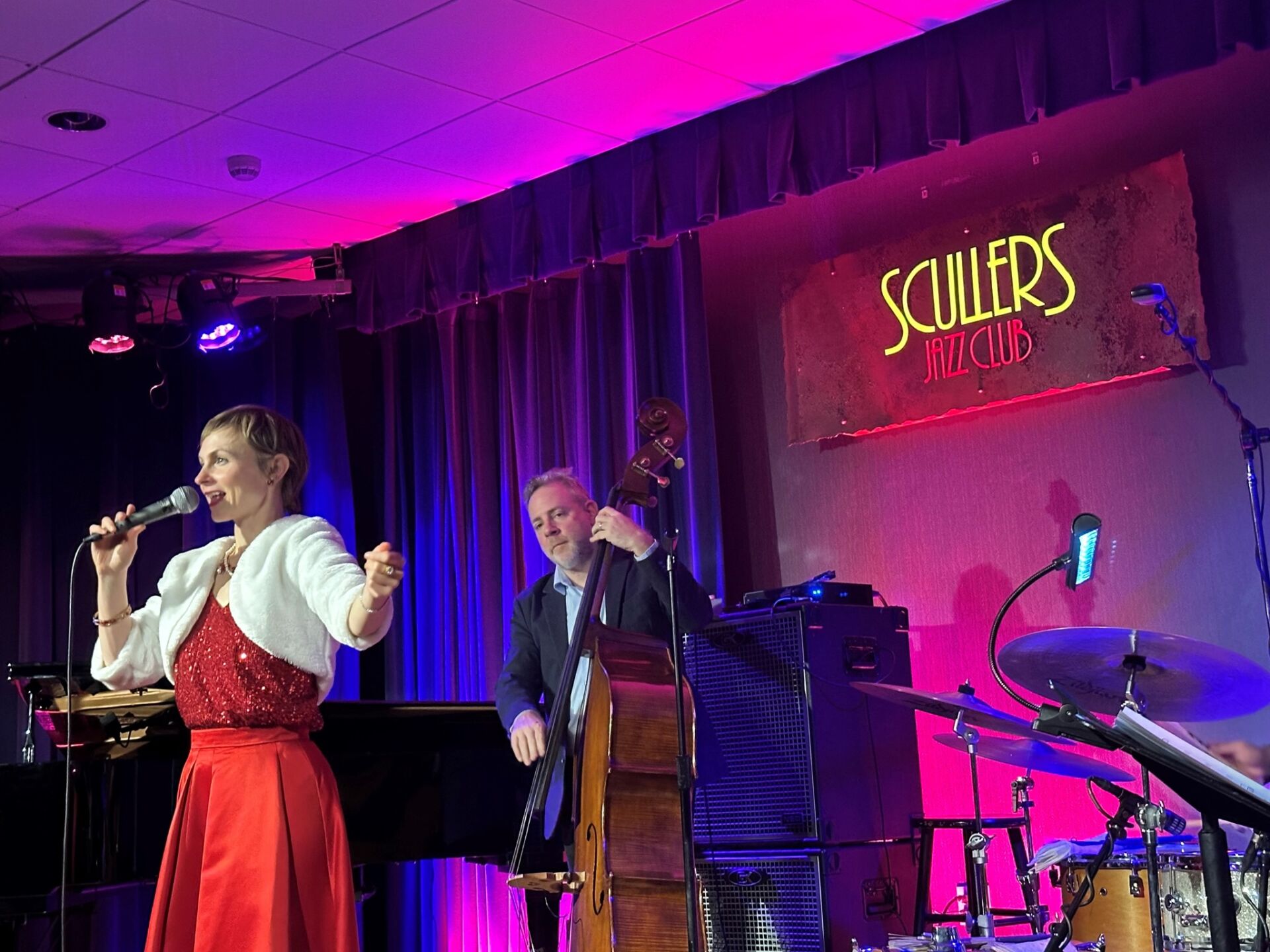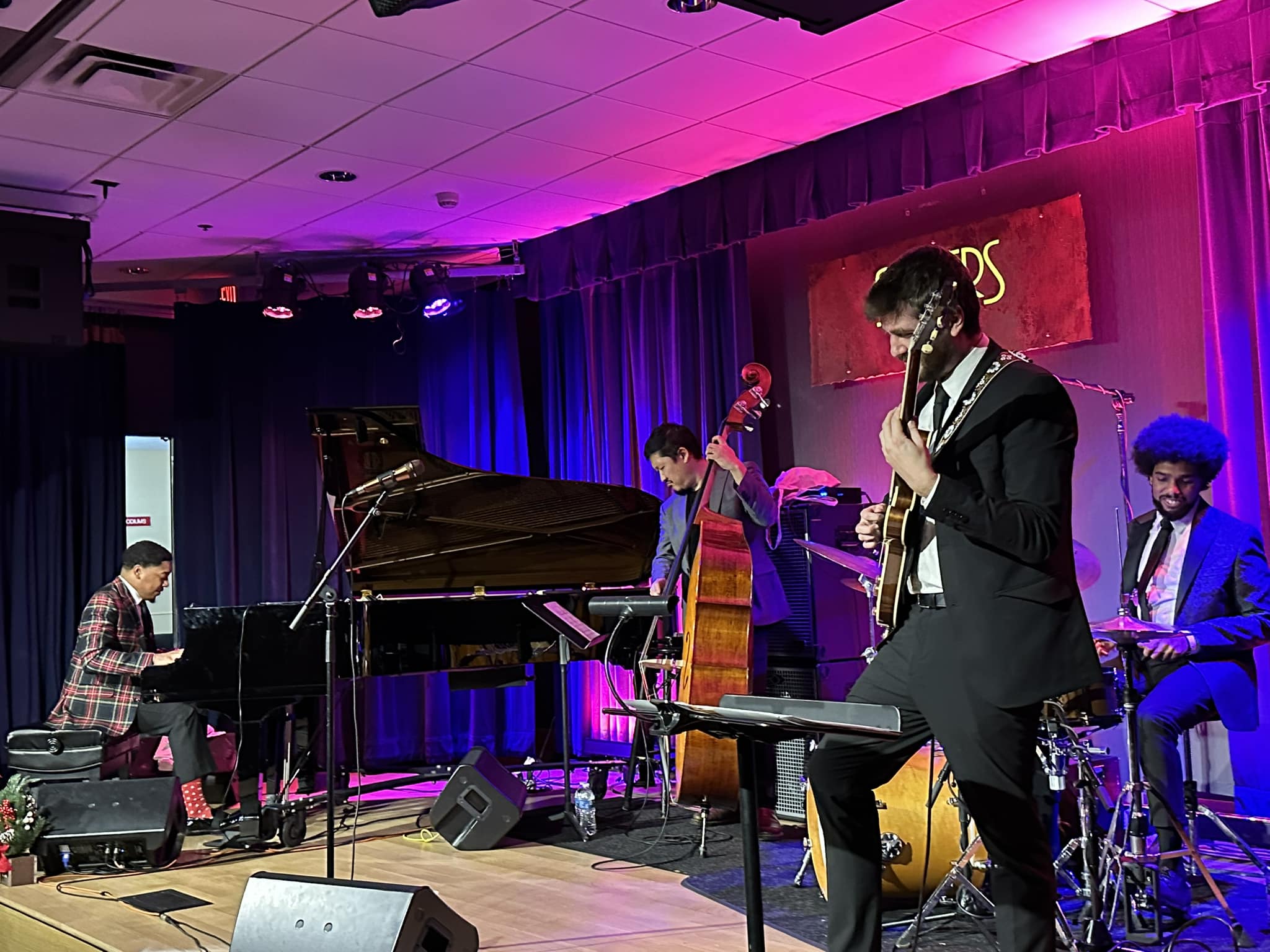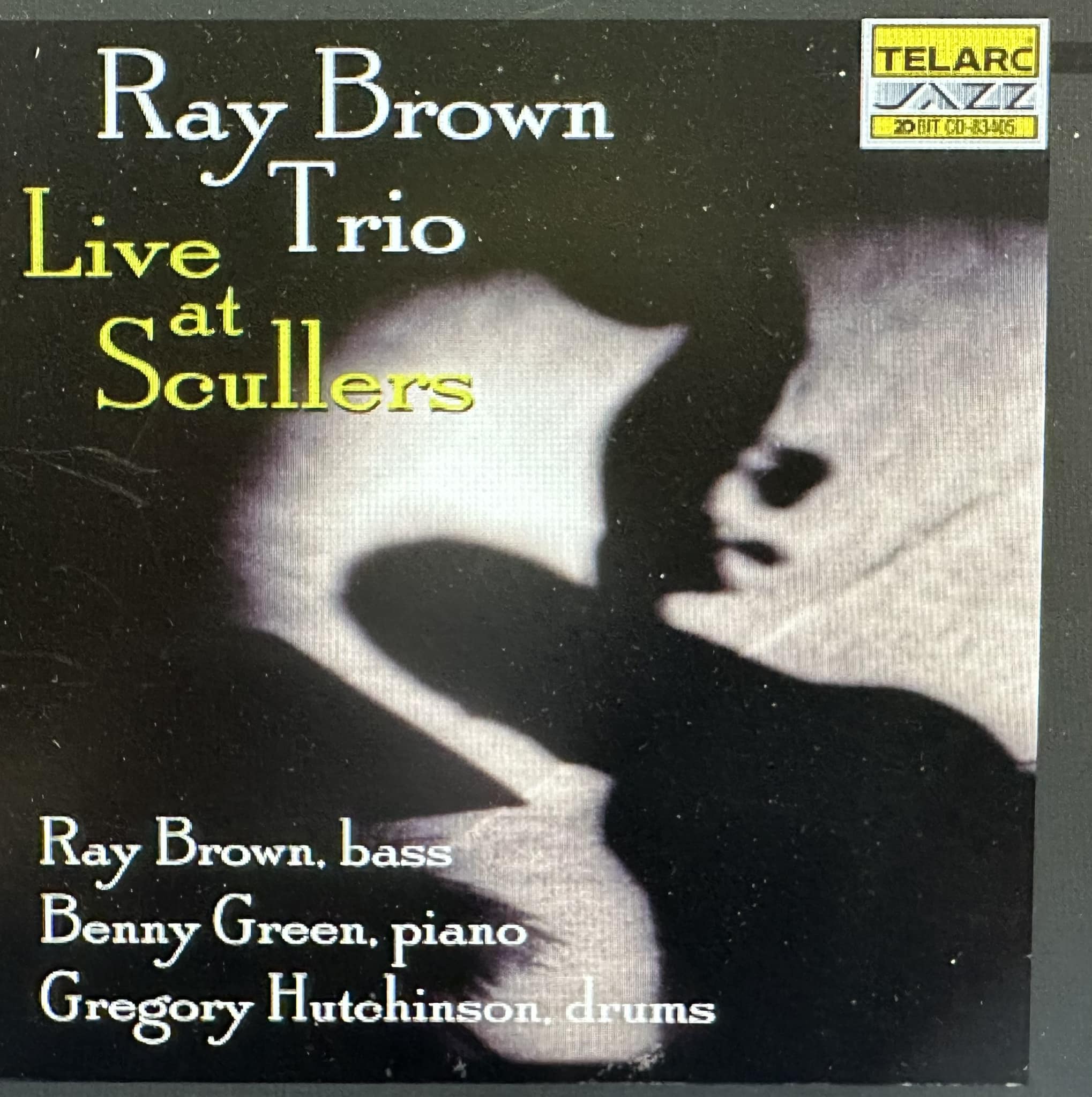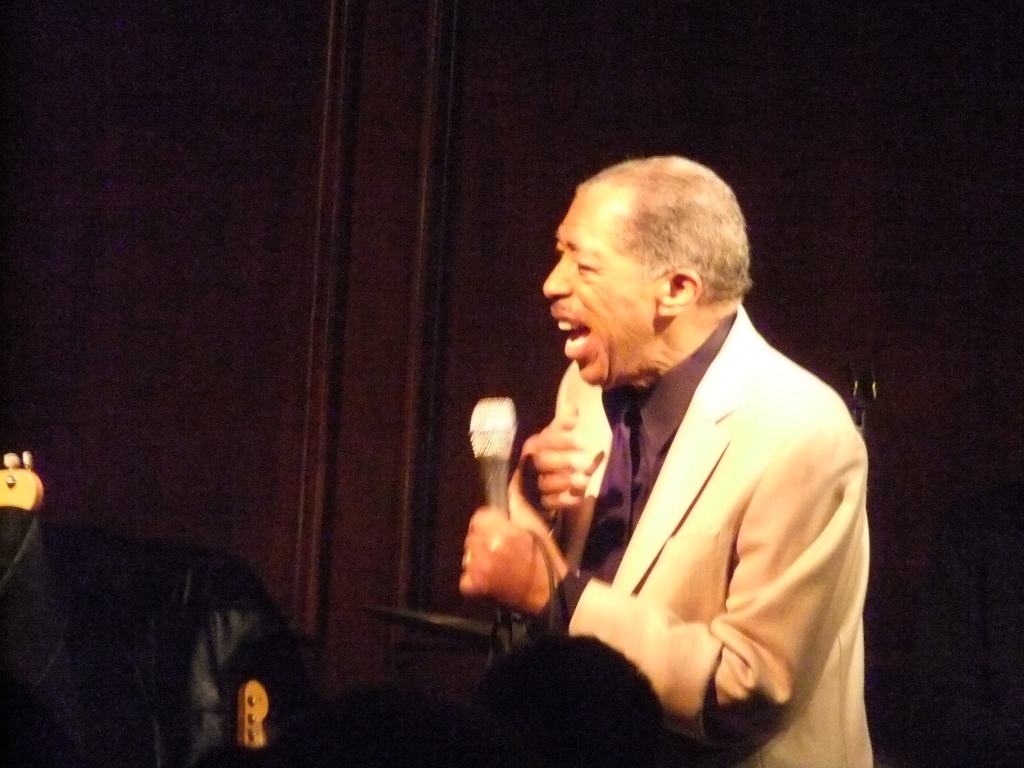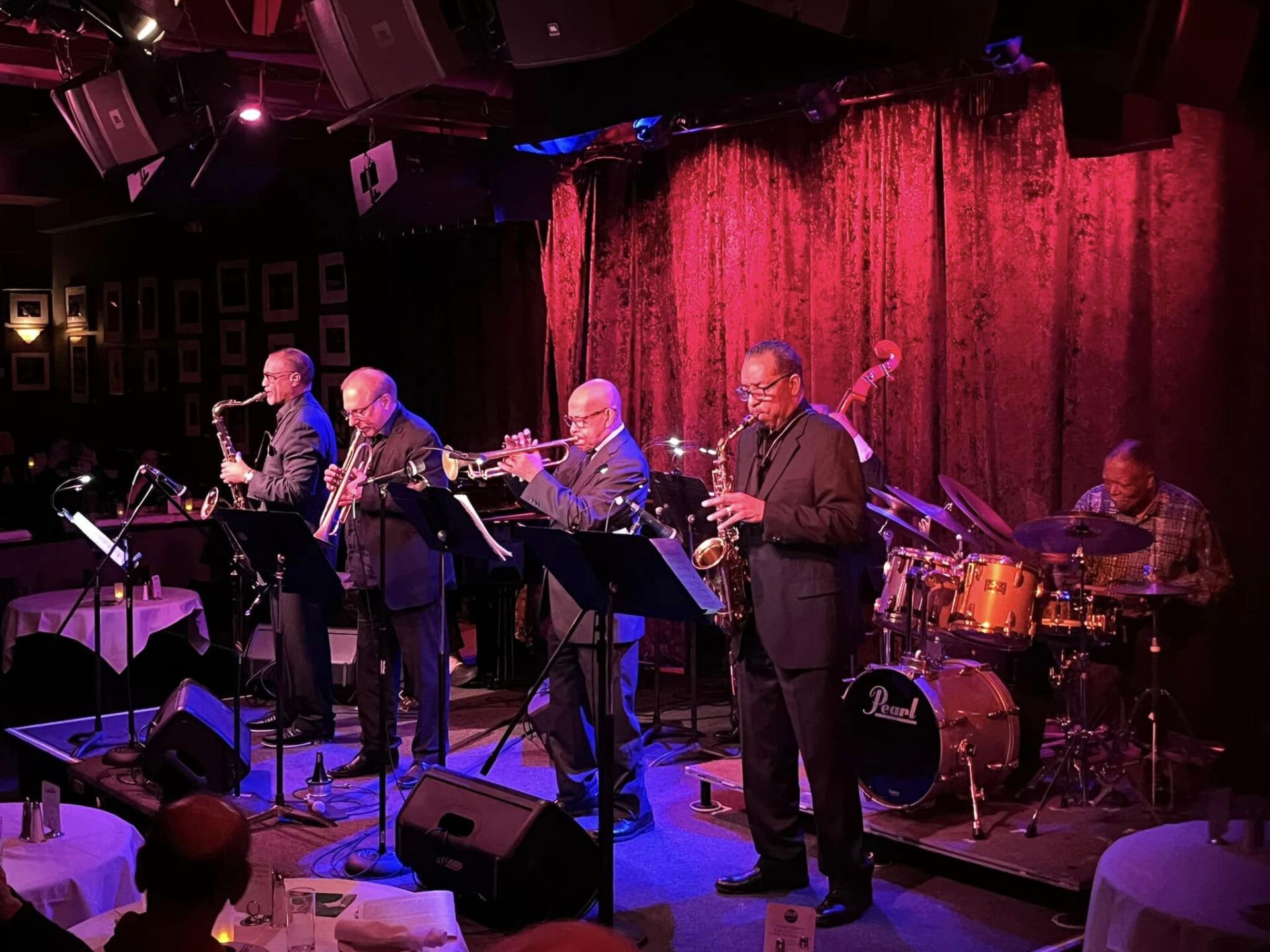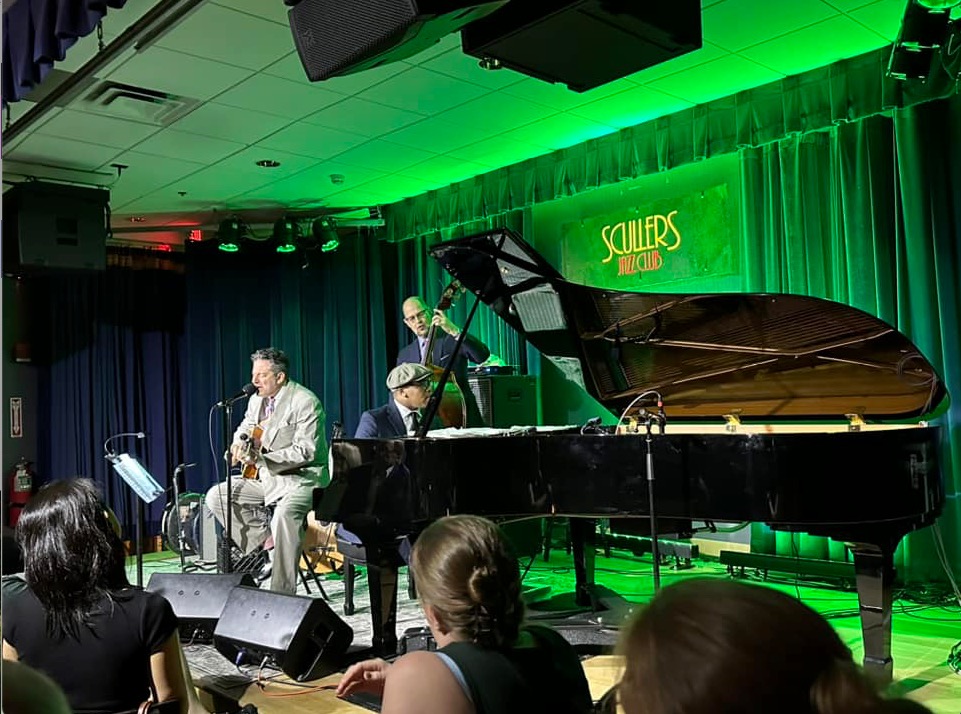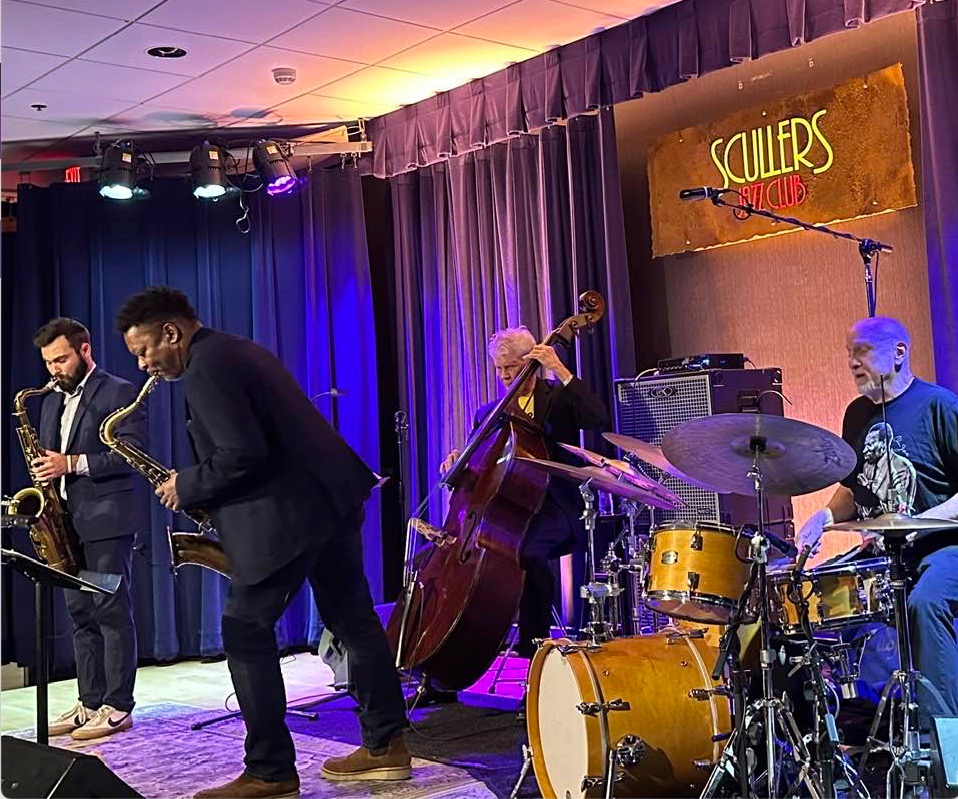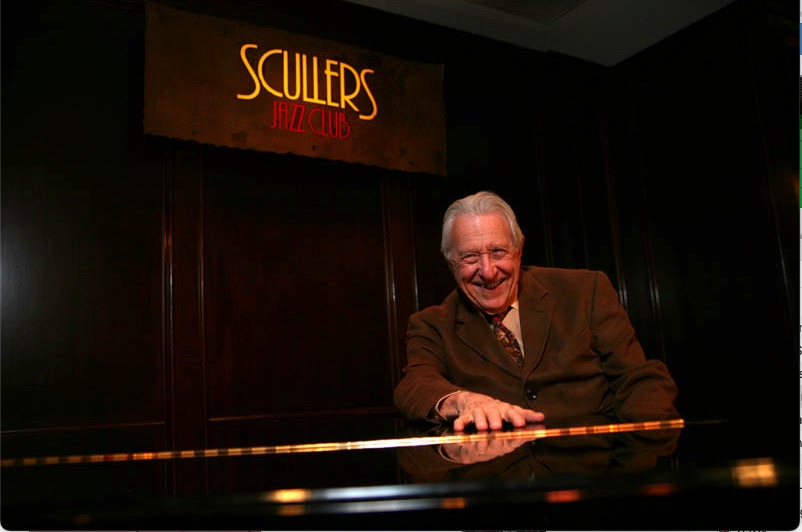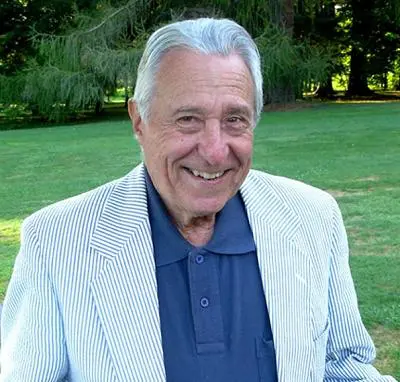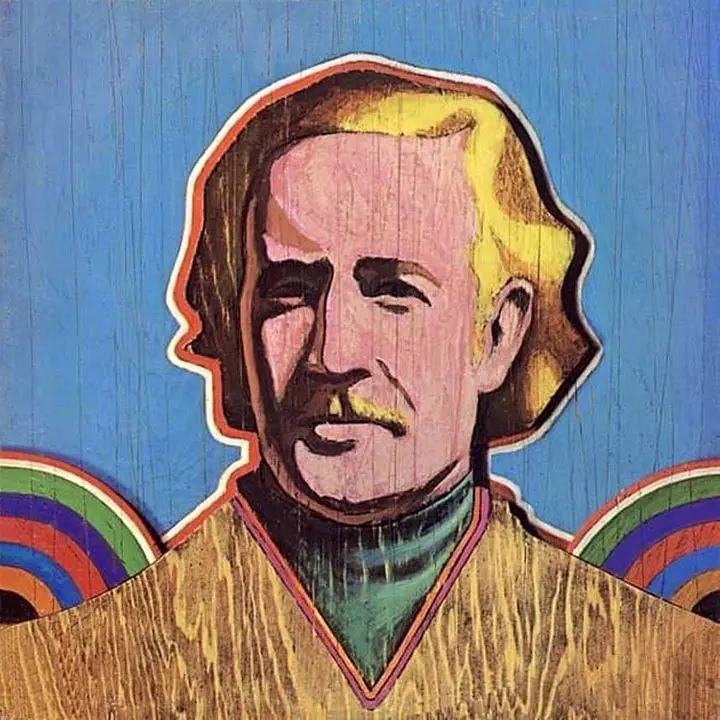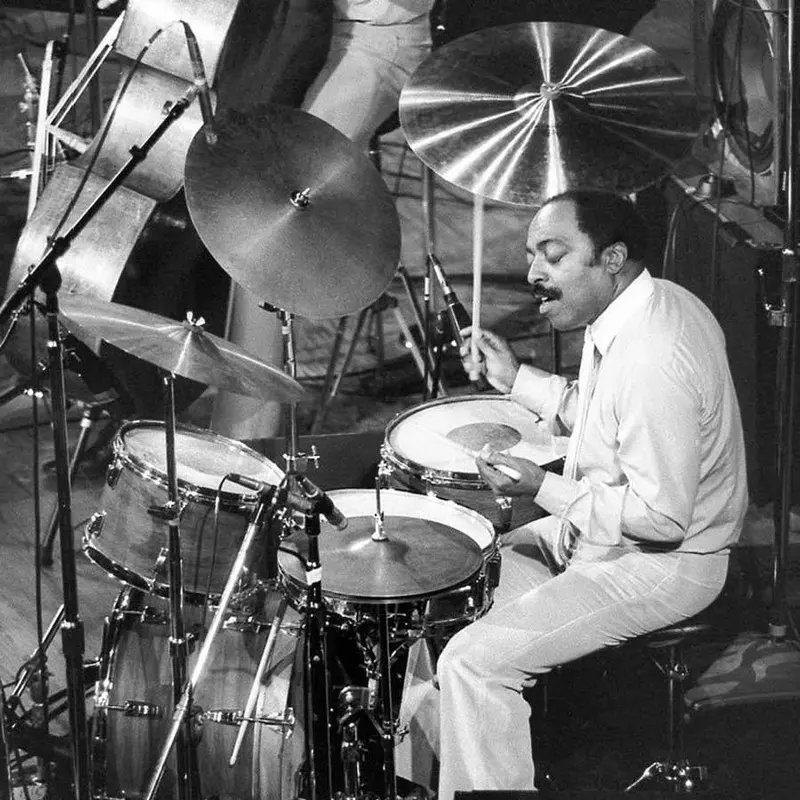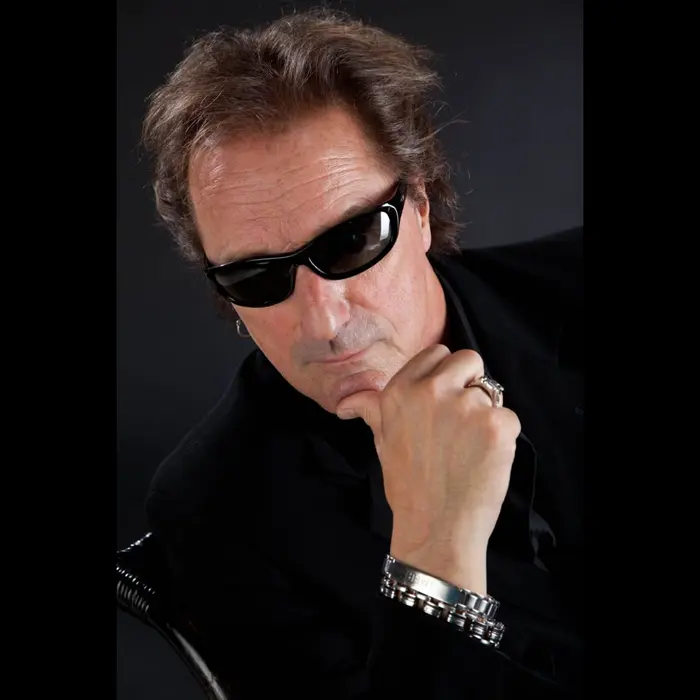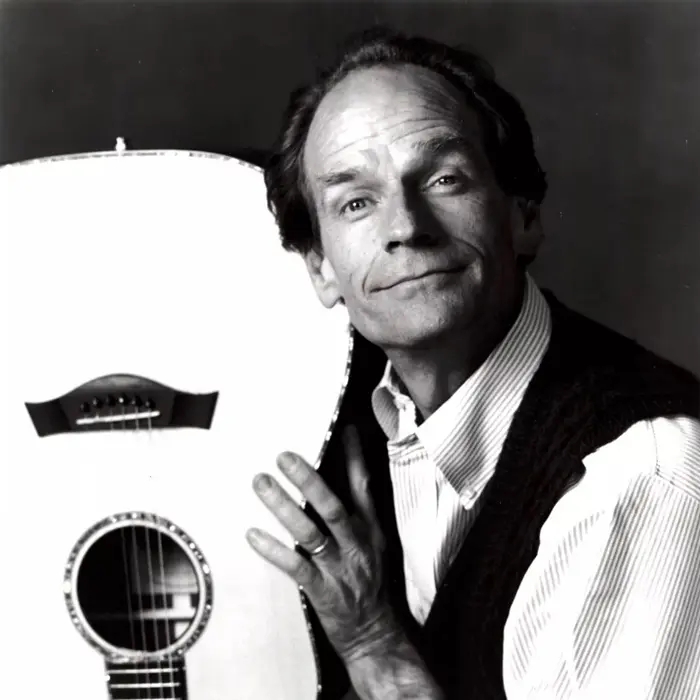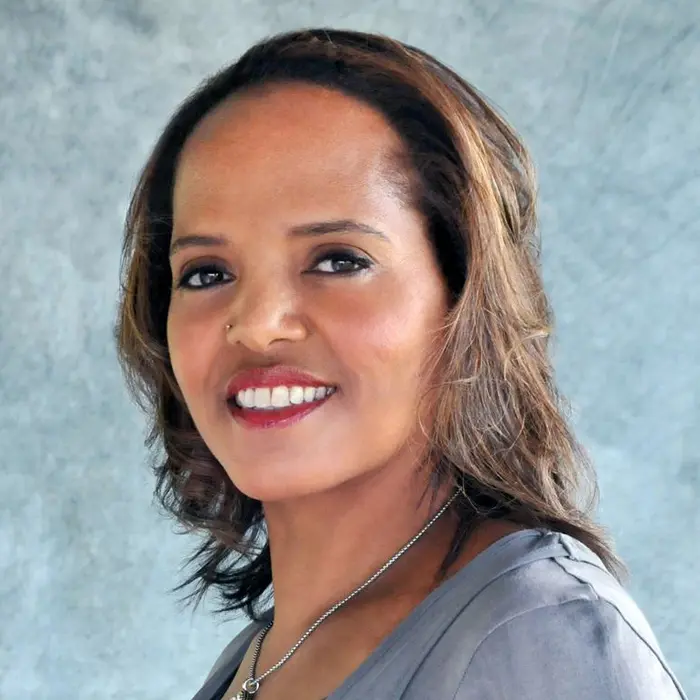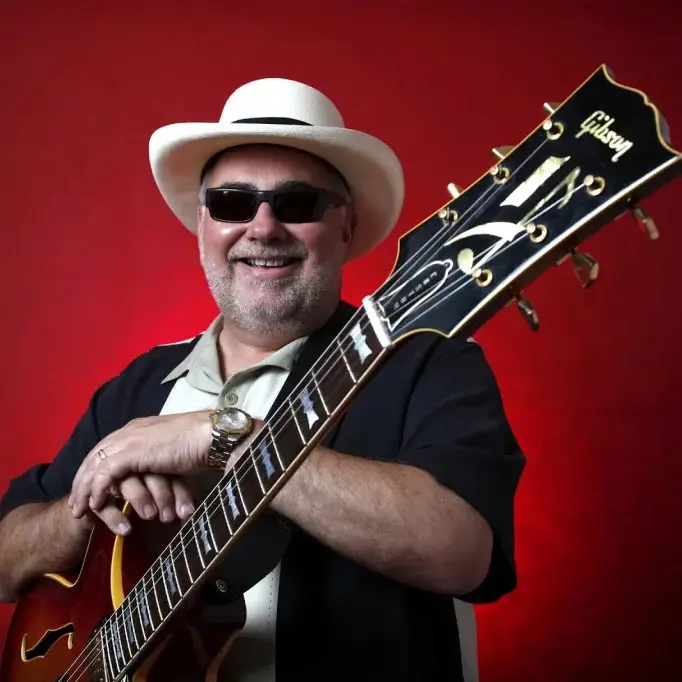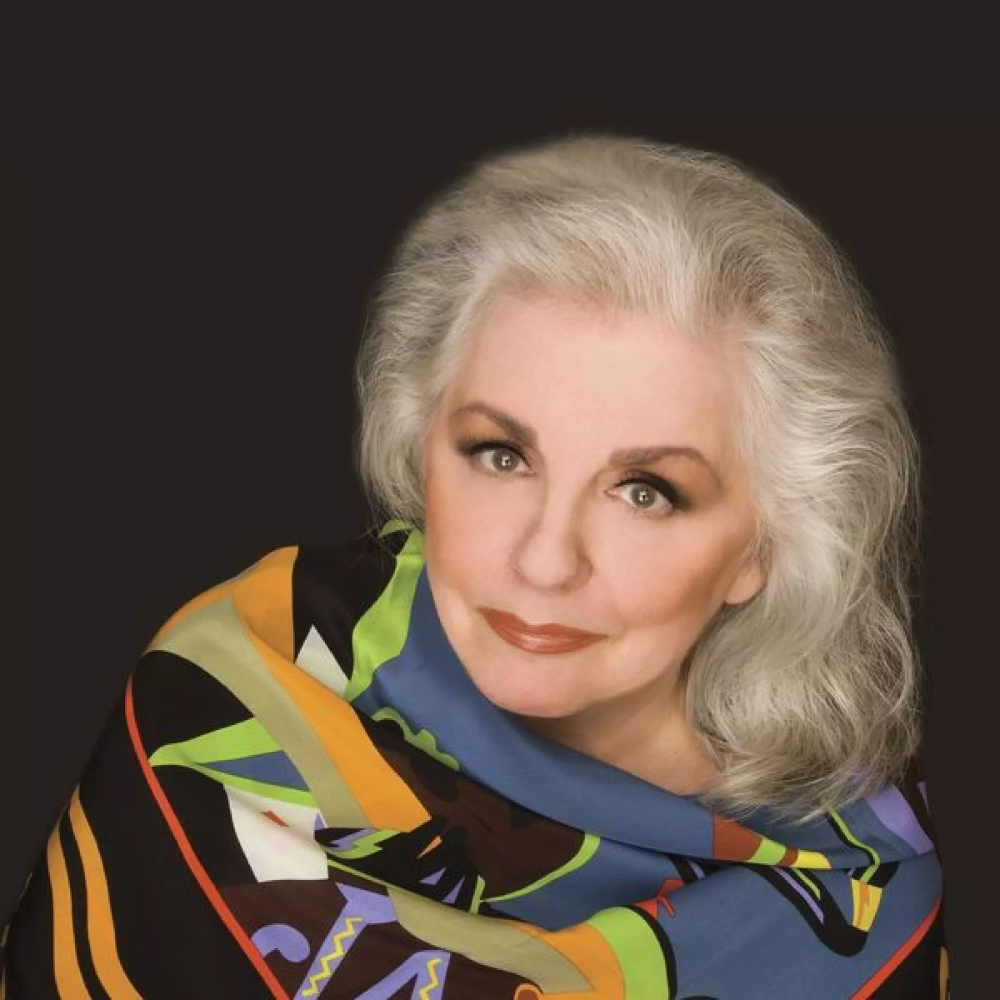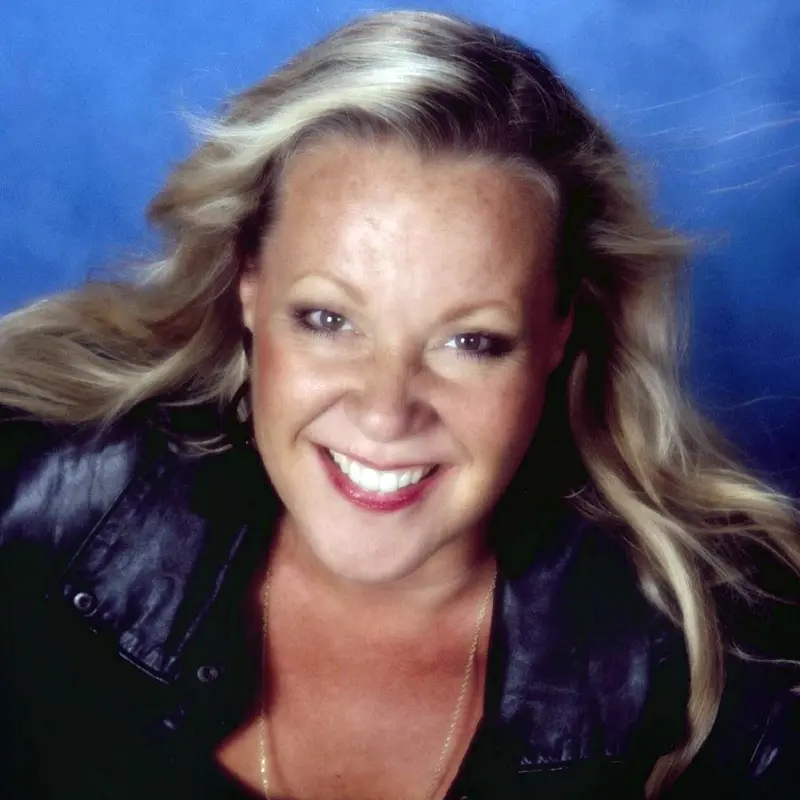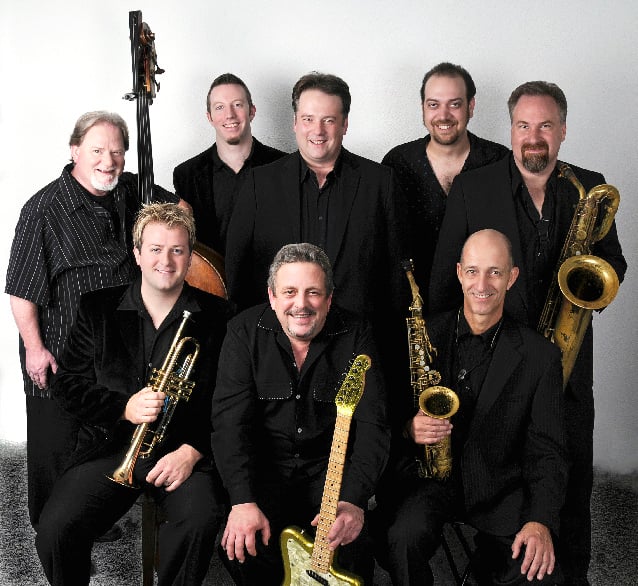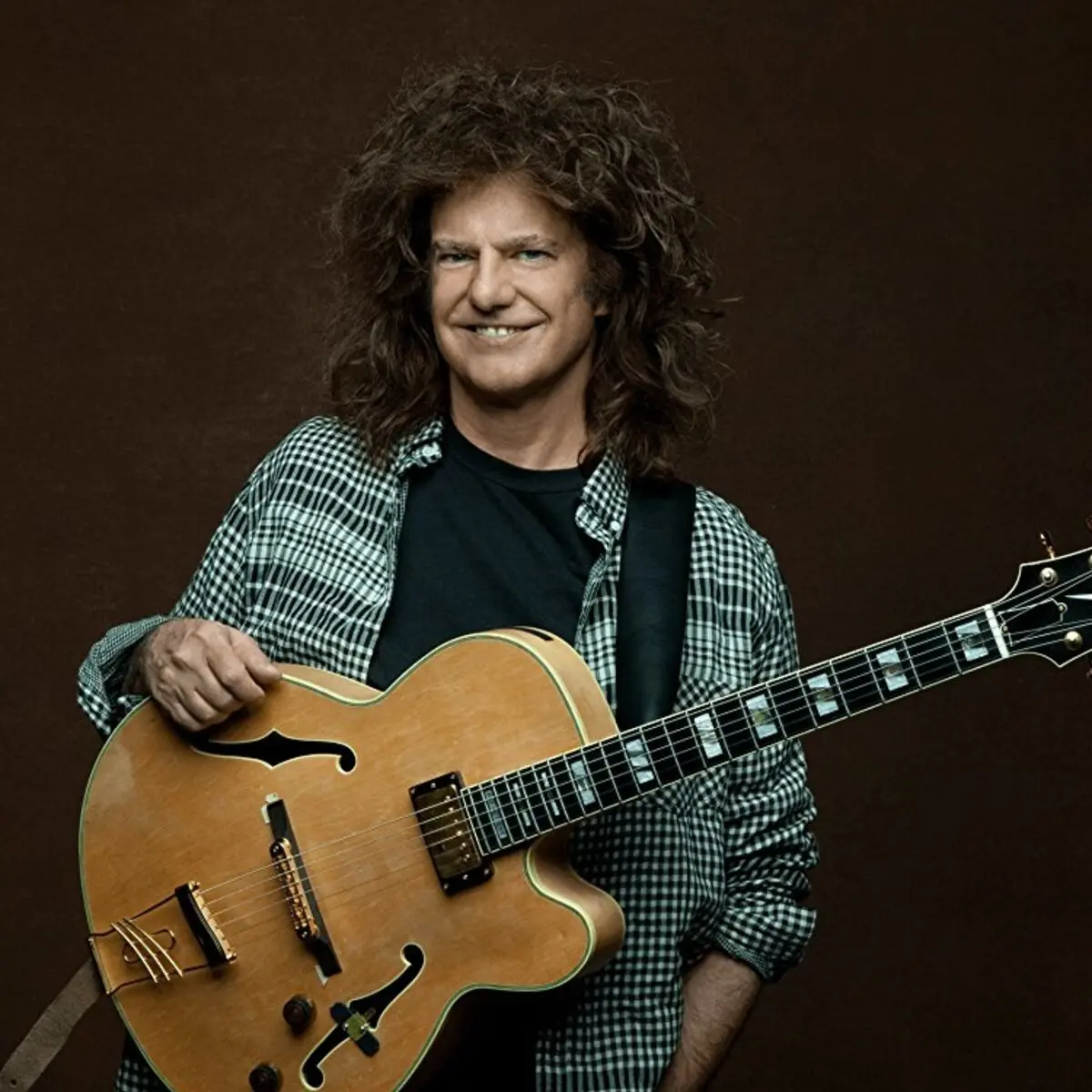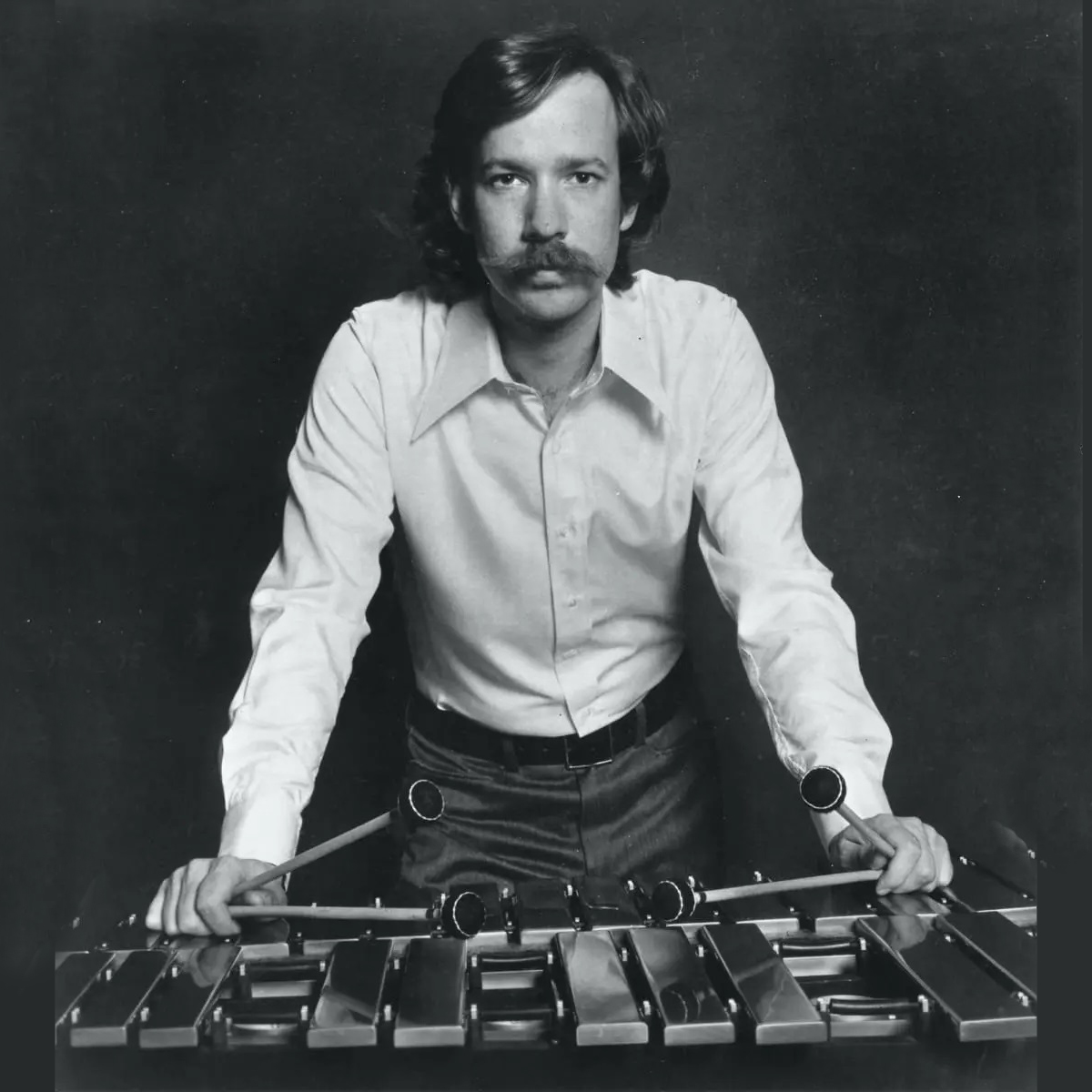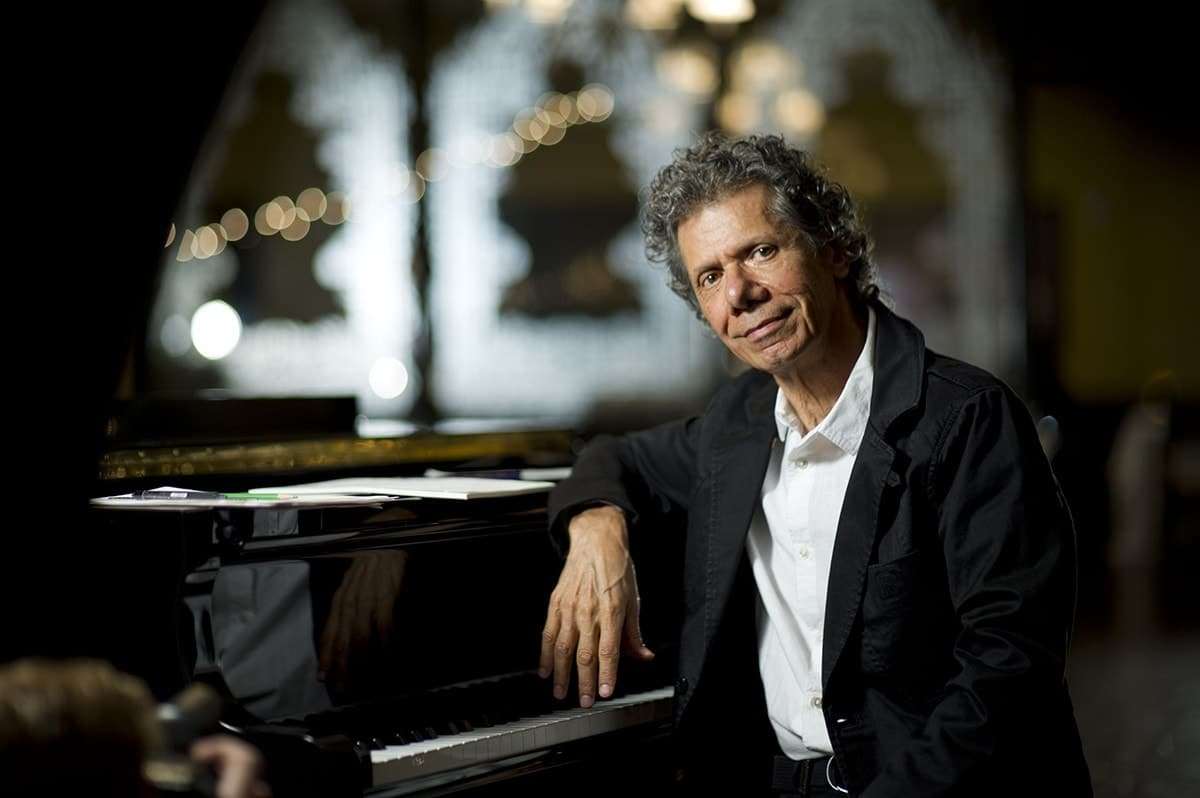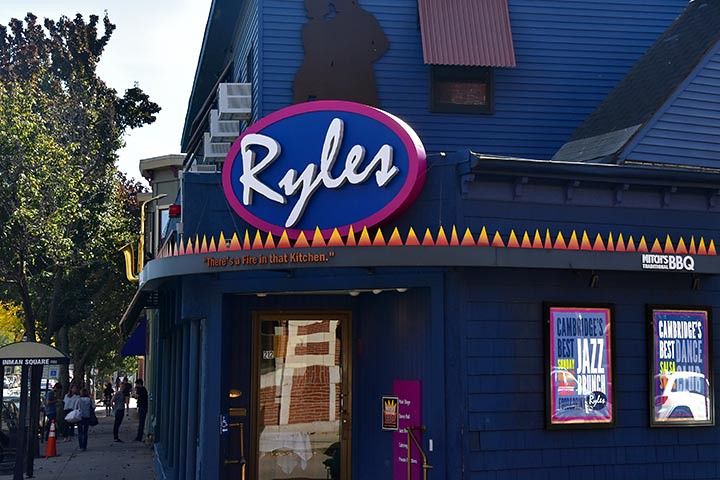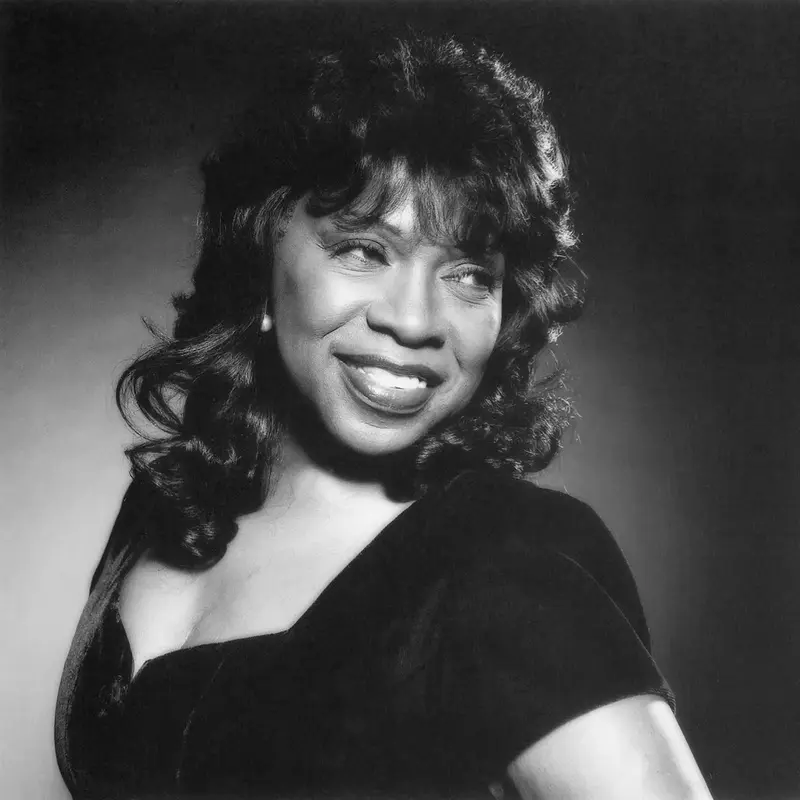Scullers Jazz Club
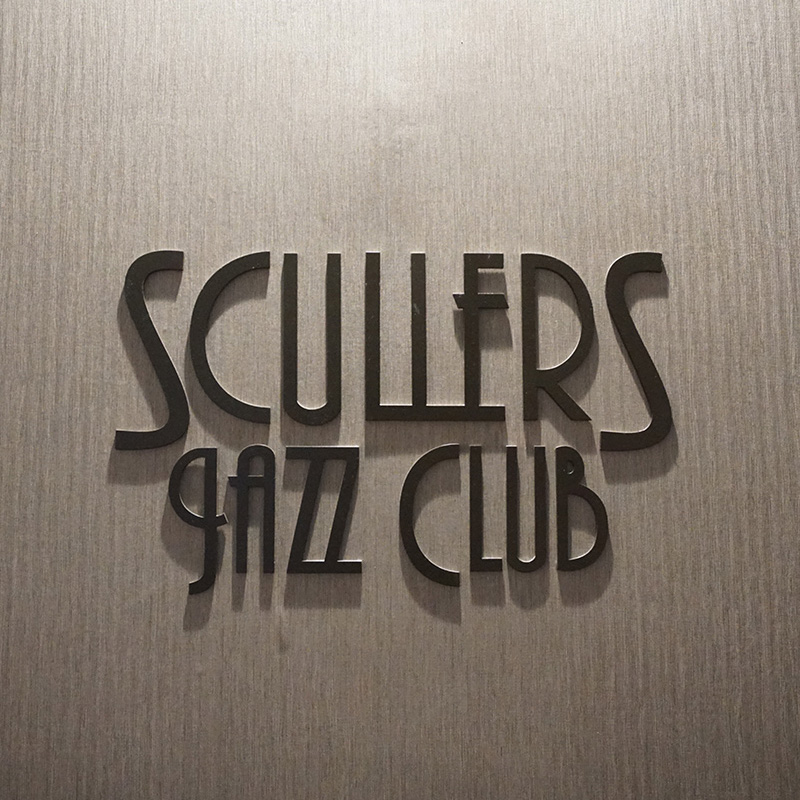
In the 1940s and ‘50s, Boston was teeming with some of the hottest jazz clubs in the United States, among them the Savoy Café, Chicken Lane, the Ken Club, the Wig Wam, Morley’s (“the Big M”), the Roseland-State Ballroom, Storyville, The Hi-Hat and Wally’s Paradise, the last of which remains open to this day as Wally’s Café Jazz Club. Most had closed by the ‘60s, by which time rock ‘n’ roll had captured the hearts and minds of America’s youth, but there were several spots that still presented acts of the more established genre, the most famous being The Jazz Workshop, which closed in 1978. From that point until the end of the ‘80s, the area’s top venues for world-class jazz were Wally’s, Symphony Hall, Berklee Performance Center (opened in 1976), the 1369 Jazz Club (also opened in 1976), Ryles Jazz Club (opened in 1977) and Regattabar (opened in 1985).
Things changed starting in 1989, however, when a cozy new venue appeared on Boston’s musical landscape and quickly established itself as a mecca for internationally acclaimed and up-and-coming artists playing traditional, contemporary and Latin jazz as well as blues, soul, R&B, cabaret and world music: Scullers Jazz Club. Over the past 35 years, it’s presented a cornucopia of talent from across the musical spectrum and become a landmark for music lovers visiting the city in the same way that Fenway Park is for baseball fans. Among its abundance of accolades, Scullers has been included in DownBeat magazine’s “Best Venues in Jazz” list and voted “Boston’s #1 Jazz Club” by Boston magazine, The Improper Bostonian, Citysearch and AOL CityGuide.
Opening, Fred Taylor
Scullers Jazz Club opened in October 1989 at 400 Soldiers Field Road, where it remains today (on the ground floor of The DoubleTree Suites). With a capacity of just 175, its intimate setting is reminiscent of Boston’s mid-20th-century jazz venues and offers clear views of the stage from every seat, but its state-of-the-art sound and lighting systems provide immediate proof that the 21st century is upon us. The club, which is open to all ages and has no official dress code, presents live music every Friday and Saturday night except during the months of July and August (with occasional exceptions).
In 1990, former co-owner of The Jazz Workshop, Paul’s Mall and the Harvard Square Theatre Fred Taylor became the club’s entertainment director. With a dizzying range of contacts in the local, regional, national and international jazz communities and an entrepreneurial genius honed over decades in show business, he’s widely considered to have been the driving force that allowed Scullers to flourish. “It was basically just a hotel lounge when he got there that sometimes had music,” Boston-based jazz historian Richard Vacca told WBUR’s Simón Rios in 2019. “He made the business. He did a lot of work, he innovated and he brought a lot of people into town.” In addition to his ability to draw the biggest names, Taylor always welcomed new talent into the club, including jazz trumpeter and current Berklee College of Music professor Jason Palmer, who Taylor booked as a headliner soon after he graduated from New England Conservatory. “Fred really took an interest,” Palmer told Rios. “That was one of his hallmarks, finding young talent and then just giving them a platform to perform and giving them a chance to build an audience.”
Notable appearances
Scullers established itself as more than just a jazz venue during its first decade, with appearances by jazz artists Mose Alison, Wynton Marsalis, Tuck & Patti, George Shearing and Shirley Horn but also ones by R&B/soul/gospel great Lou Rawls, cabaret singer-pianist Bobby Short, bluesman Ronnie Earl and his band The Broadcasters, Americana singer-songwriter Tom Russell and British folk-rock pioneers Fairport Convention. The variety continued during its second decade, when a number of New England-based artists took the stage, among them Roy Haynes, James Montgomery, Johnny A., Livingston Taylor, Terri Lyne Carrington, Duke Robillard, Carol Sloane, Rebecca Parris, Toni Lynn Washington and Roomful of Blues.
Other acts that appeared during the first part of the 2000s include Al Kooper, Richie Havens, Bill Bruford’s Earthworks, Yellowjackets, Harry Connick, Jr., Dr. John, Average White Band, The Subdudes, Stanley Jordan, Leon Redbone, Larry Carlton, The Four Freshmen, Chuck Mangione, Spyro Gyra, Al DiMeola, Carla Bley, The Manhattan Transfer, The Fabulous Thunderbirds, Steve Smith’s Jazz Legacy, Melissa Manchester, Lee Ritenour, Toots Thielemans, War, Ashford & Simpson, Elvin Bishop, Herb Alpert, Ellis Marsalis, Jamie Cullum, Brad Mehldau, Ravi Coltrane, Steve Tyrell, Joe Bonamassa, Andreas Vollenweider, Diana Krall, Tower of Power, Norah Jones, Graham Parker and Christopher Cross.
While jazz has dominated the Scullers roster over the past 15 years, notable acts of other genres have appeared on a regular basis. Among those who’ve performed at the club over the past decade and a half are Ben E. King, Tony Bennett, Earl Klugh, Pat Metheny, James Cotton, Gary Burton, David Sanborn, Branford Marsalis, Chick Corea, The Holmes Brothers, Dee Dee Bridgewater, Graham Dechter, Diane Schurr, Steve Kuhn, Roy Hargrove, Oleta Adams, The Manhattans, The Jim Hall Trio, Robert Glasper, Arturo Sandoval, The Bad Plus, Peter Cincotti, Michael Bublé, Kenny Garrett, The Sax Pack, Jeff Lorber, The Rippingtons, Joey DeFrancesco, Monty Alexander, Najee, Rachelle Ferrell, Larry Coryell, Rory Block and Macy Gray.
Taylor’s dismissal, Current director
In early January 2017, Scullers ended 88-year-old Taylor’s 26-year run at the venue by firing him abruptly, with DoubleTree general manager Jayne Barrett telling him that February would be his last month as an employee. Annmarie Blythe, the club’s general manager, was given her walking papers at the same time. “I said, ‘What is your motivation for making a change?,’” Talyor told The Boston Globe’s Mark Shanahan the week of his firing, “and [Barrett] said, ‘You’ve been doing the same thing for a long time and we need a change.’ That’s what I got for an answer.”
His dismissal surprised and angered local jazz artists and fans to such a degree that some talked about boycotting the club in protest. Taylor insisted against it, however, because he thought such action would draw attention away from he always believed were the most important things: the music and the musicians who played it. “It’s not all about numbers for him,” said saxophonist Grace Kelly at the time. “It’s not about, ‘Oh, we didn’t sell this amount of tickets.’ The first thing is: ‘What was the music like? What was the artist like?’” Kelly, who Taylor discovered when she was 13, is now one jazz’s brightest stars.
The sudden sacking came as a major blow to Taylor, according to Vacca (co-author of Taylor’s 2020 autobiography What, and Give Up Showbiz?). “He was heartbroken when they told him that they were done,” he told WBUR’s Rios in 2019, the year that the legendary impresario died at age 90. The club’s current artistic director is Marla Kleman, who took the position in August 2022 and is “an amateur jazz historian and avid collector of all things jazz,” according to the official Scullers website.
(by D.S. Monahan)

